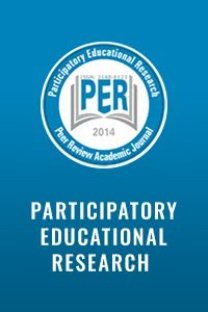Attractiveness Of College Buildings In Terms Of Supplying Erasmus Students’ Motivation(Evaluation of Erasmus Program in Sinop Education Faculty 2006-2016)
Erasmus mobility and university buildings are the
main themes of this study. The question of does university buildings are
supplying university student’s needs was answered. The traffic of Erasmus
program sharply increased in Turkey especially one direction, Turkey to
European countries in last ten years. This manuscript is about Erasmus studies
of Sinop Education Faculty that is located in the most north part of Turkey
(Black sea shore). This study was conducted in three parts. In the first part,
the beginning of the Erasmus program of Sinop Education program in 2006 was
presented. In the second part, the available state was presented. In the third
part, whether the faculty buildings were enough for the students who joined
Erasmus program in fall term in 2013 or not was evaluated. In this study, the
quantitative data gathering methods were used. Quantitative documents like
internet pages, visitor professor presentations and photographs were analyzed
via text analysis. In 2006, none of the students wanted to go to other
countries with Erasmus program whereas, 23 students managed to have a
successful Erasmus visit in 2013. This state was resulted from the intense work
of Erasmus faculty coordinator. Space, time encouragement is very important in
academic life. In this study, the ideal of Erasmus faculty building was
presented. It is thought that the present visits don’t supply the students’
needs. Future studies should be
conducted on motivational studies of self-determination theory and from the
perspective on emotionality of social learning. We should bear in mind that new
horizons of students’ mobility should be conducted in cross cultural
understanding of motivational needs people.
___
- Bronfenbrenner, U. (1977). Toward an Experimental Ecology of Human Development. American Psychologist, 32 513-531 doi: 10.1037/0003-066X.32.7.513
- Deci, E. L., & Ryan, R. M. (2000). The "what" and "why" of goal pursuits: Human needs and the self-determination of behavior. Psychological Inquiry, 11(4), 227-268.
- De Witte, H. (2004). Ideological Orientation and Values Encyclopedia of Applied Psychology. (Edt.Spielberger, C.). Elsevier Academic Press. 249-258
- European Commission, (2013). http://ec.europa.eu/education/erasmus/history (Retrieved December 18 2013).
- Kocayoruk, E., Usakli, H., Mert, A. &, (2014). Clarifying the Link between Parental Supportiveness and Adolescents’ Life Satisfaction. III. European Conference on Social and Behavioral Sciences. February 6, 8, Sapienza University Rome, Italy.
- Usakli, H. (2009). Lifelong Learning Programs of Education Faculty in Sinop: Evaluation of Participants’ Problems and Worries. Intercultural Relations Society. 8 199-207.
- Usakli, H. and Ozsuer, S. (2009). First International Science Conference Gifted and Talented Creators of Progress (Theory and Practice) konferansı dahilinde "Gifted and Talented Creators of Progress" "Teaching Living Values to Gifted (Comparison of Three Techniques)", 360-369 pp., Bitola-Ohrid R. Macedonia.
- Usakli, H. (2008). Motivation and Group Dynamics. In Educational Psychology (Edt. Cafoglu, Z. & Aksut, M.). Ankara: Grafiker.
- Sommers-Flanagan, J. and Sommers-Flanagan, R. (2004). Counseling and Psychotherapy theories in context and practice New Jersey: John Wiley & Sons.
- Simsek & Demir, (2013). A Cross-Cultural Investigation into the Relationships among Parental. Support for Basic Psychological needs, Sense of Uniqueness and Happiness. The Journal of Psychology: Interdisciplinary and Applied. DOI:10.1080/00223980.2013.805115
- Meheal, (2006). Quantitative Text Analysis. In Handbook of Multimethod Measurement in Psychology. (Edt. Eid, M. and Diener, E.) New Jersey: APA 141-156.
- Maslow, A. H. (1970). Motivation and personality (2nd ed.). New York: Harper & Row.
- Usakli, H. (2007). Çok Kültürlü Eğitbilim. Psikolojik Danışma ve Rehberlik (www.rehberlikportali.com retrewed 10 May 2009).
- Vargas, P.T. and Yoon, S. (2004). Advertising Psychology. Encyclopedia of Applied Psychology. (Edt.Spielberger, C.). Elsevier Academic Press. 53-64
- Vancouver, J.B. (2004). Motivational Taxonomies. Encyclopedia of Applied Psychology. (Edt.Spielberger, C.). Elsevier Academic Press. 625- 630References: see the journal’s instructions for authors for details on style
- ISSN: 2148-6123
- Yayın Aralığı: Yılda 6 Sayı
- Başlangıç: 2014
- Yayıncı: Özgen KORKMAZ
